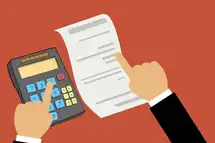What are restaurant accounting services?
Restaurant accounting services are a type of financial service that helps businesses keep track of their finances and make sure they are compliant with tax laws. These services can include bookkeeping, auditing, and tax preparation.
How to Choose the Right Restaurant Accounting Services for Your Business
What are Restaurant Accounting Services?
Not all of what makes a restaurant successful is the cuisine it serves. You couldn't advance if you didn't have a firm grasp on your finances.
Therefore, for planning effectively, restaurant owners require thorough information on the amount and sources of their expenditure and revenue, as well as detailed knowledge of their liabilities and assets. Restaurant owners would, for instance, require information on food sales, cost of goods sold (COGS), expected sales, cost of human resources, revenue from both online and offline channels, prime cost (COGS + labor cost), food costs, advertising expenses, and costs on loyalty programs. Detailed empirical information prevents decisions from being made solely on the basis of the gut feeling of a business owner.
However, not every business owner may be adept at number-crunching. Even if you conduct accounting activities for your business yourself, the result may be nothing more than a half-baked one. Restaurateurs are not expected to have accounting degrees, and hence, outside expertise is a must.
Accounting service professionals like certified public accountants (CPAs) are those experts, who help restaurants monitor expenses on food, labor, asset upkeep, and business growth. With professional help, a restaurant business can compare costs to earnings, and devise impactful strategies. Therefore, accounting services help restaurants track accounts receivable (the amount owed to an organization) and accounts payable (the amount the organization owes).
Restaurant accounting also entails bookkeeping services, with the help of which earnings and costs can be documented. Accounting specialists assist businesses by processing payroll, offering vital guidance on how to lessen tax liability and boost tax compliance, helping with audits, engaging in forensic accounting to track down missing funds, and making sure the organization's recorded transactions match the bank statement.
Accounting services relieve a restaurant of the mundane, but essential, work of improving budgets, preparing balance sheets, preventing fraud and mismanagement of funds, and generally keeping the company's finances in order.
How Does Restaurant Accounting Software Work?
Accounting solutions work on the basis of a cash-based or an accrual accounting method.
Cash-based accounting records income as it is received in the account, and expenses are factored in when payments are made. Customer invoices can be created and exported as PDF/other kinds of files by software solutions that are in sync with the cash-based method of accounting. This accounting approach lets businesses control payments while specifying line items, pricing, and sales tax rates.
Using a cash-based system makes it easier to track supplier payments, create and print tax forms, process payments to attorneys and independent contractors, and process rent and royalty payments. Rudimentary reporting, including payment histories and tax summaries, is provided as well.
Accrual accounting, on the other hand, recognizes expenditures and income at the time of transactions taking place, irrespective of payments being actually made, or cash entering or leaving the account. Accruals are, in fact, recorded in the balance sheet before the money is paid or received. Accordingly, while accounts payable indicates the amount that is expected to be spent, accounts receivable refers to the amount businesses expect to rake in as revenue.
Accrual accounting provides a better idea of the income sources of an organization and the nature of its expenses. Therefore, organizations that are large in terms of the revenue handled, and typically earn in excess of $1 million, are better off using software solutions that work on the basis of accrual accounting.
Cash-based accounting, however, scores over the accrual method due to its simplicity. This problem can be adequately addressed by advanced software solutions that automate and streamline accrual accounting.
The restaurant accounting services you choose must be able to provide the specific type of accounting your business needs.
This article tells you what features to look for to narrow down your search.
How Can Accounting Software Help Control Costs?
No restaurant business can survive in the face of competition without keeping a close vigil on its finances. While it needs to increase food sales, it must also keep its expenses on a tight leash. Accounting software automates this vital task, enabling restaurants to reduce human error and execute their accounting diligently and consistently.
The monitoring of expenditures is automated by accounting solutions that offer a complete picture of the costs incurred by restaurants, including Food Cost , labor costs, taxes, repair and maintenance costs, etc. With a complete picture of the quantum and sources of expenses, a restaurant business will not only be able to build strategies to minimize costs, but will also ensure that its cash flow doesn't dry up.
The embedded cash management feature of automated software allows restaurants to reconcile transactions with bank statements, which in turn provides precise cash positions, and allows businesses to decide about new investments, such as buying new software, increasing seating capacity, or opening a new store.
Accounting solutions allow restaurants to avoid resource wastage caused by buying more stocks than is required, and recommend exact amounts essential to prevent stock-outs.
Accounting software can, in this regard, work in tandem with restaurant back office solutions like point of sale (POS) and sales forecasting systems to suggest which ingredients to order and in what quantities. It also supports inventory adjustments by virtue of which the actual and recorded inventory counts can be reconciled. This is essential for taking into account changes in stock levels as a result of spoilage, wastage, loss of value, free samples, pilferage, and errors in counting the number of products received. Food utilization variance can also be identified with the help of accounting software.
Therefore, undue expenses and cost escalations can be controlled with data reported and analyzed and audits conducted with the help of automated accounting systems.
Apart from reducing costs by streamlining inventory management, accounting solutions look at current, past, and projected sales figures to inform staff scheduling. They also suggest ways to reduce unnecessary overtime, help in selecting vendors offering the largest cost advantages, identify menu items that draw the largest revenue and those that don't have a lot of takers, and allow restaurants to calibrate strategies for promotional campaigns and customer relationship management. Sales reports for restaurant branches or franchise stores can be studied in order to make business decisions data-driven.
In addition, accounting solutions allow businesses to reduce costs by advising ways to reduce tax burdens and by ensuring tax compliance. They also help with the management of assets like refrigerators, coolers, air-conditioners, furniture, television sets, POS system, and restaurant real estate.
Features to Consider in Restaurant Accounting Software
Choose a cloud-based restaurant accounting solution that enables on-the-go financial data monitoring that can be accessed anytime, from anywhere, and on any handheld device.
Various elements of business operation should be automated by accounting systems. This allows businesses to reduce their reliance on human accountants and put machines in charge of number-crunching. In contrast to humans, machines can consistently produce accurate insights because they won't get bored or worn out as a result of processing large amounts of data. Additionally, automated workflows guarantee quicker business operations and eliminate the need for manual data entry by restaurant staff. This allows restaurant employees to save time and effort. Inadvertent errors can also be stamped out.
Furthermore, accounting solutions should be able to support accounts payable as well as accounts receivable so that the owners of restaurants have a thorough understanding of both, the expense and earning sides of cash flow. An uncomplicated chart of accounts should be included in the accounting system, giving business owners a bird's eye view of the organization's COGS, assets, revenues, and liabilities. The software you opt for must provide strong restaurant bookkeeping as well.
The selected accounting solution must also be able to work hand-in-hand with software and hardware currently in use at the organization to manage business affairs. Moreover, it should be possible for accounting systems and bank accounts to integrate with each other. Accounting systems should also offer tax advice.
On the other hand, a small business, such as a startup with limited resources, may be swayed by the price of accounting software.
Top 3 Restaurant Accounting SoftwareNo. 1- Restaurants 365
Thanks to seamless POS connectivity, general ledger connectivity, automation of accounts payable, and reporting in real time, the Restaurant365 accounting software helps boost margins and improve scale without increasing overhead costs.
With R365, businesses can totally modernize their accounts payable process. You don't have to worry about invoices piling up, and manual cheque-writing can be eliminated too.
Automated tracking of price fluctuation and verification of contract price allows you to correct any errors in the invoices submitted by vendors. This way you save money too. R365 Accounting also has useful auditing features. It takes over the task of data entry, freeing the restaurant staff to focus instead on customer service.
This software solution allows invoices to be uploaded from any mobile device and lets suppliers submit invoices. Invoices can be captured automatically to the general ledger and customized approval processes can be established by vendor, location, category, and amount.
R365 integrates directly with your bank account, lets you monitor the lifetime costs of fixed assets, and lets you budget for several locations at the same time.
Customized reports ensure that every decision you make is driven by data. The software lets you undertake data analysis in real time.
You're in the market for a good restaurant accounting service, but you don't know which to choose.
This article brings you the best products in the market to help you decide.
Restaurant Accounting Software No. 2- Bistro Accounting
Bistro Accounting manages every aspect of accounts payable, letting business owners and employees fully concentrate on operations.
The software integrates with a cloud-based bill payment platform called bill.com. Restaurants send reviewed and adjusted invoices to the Bistro Accounting team, which uploads them to bill.com.
Bistro's accounting software alerts businesses about outstanding invoices, reconciles cash balances, arranges supplier payments, and acquires statements to make sure that all credits and short-term payments are taken care of. It also identifies skipped invoices and handles vendor queries.
With the help of this software, restaurants can have a distinct knowledge of their food costs and labor costs, so that the necessary adjustments can be made. Costs are adjusted in keeping with stock counts.
The software records earnings data from the POS system, and delivery and catering apps. Costs, on the other hand, are synced with bill.com, and other sources.
This accounting solution reviews restaurants' profit and loss statements to unearth trends and anomalies. It reviews and reconciles balance sheet accounts so that tax professionals are provided with accurate data.
It also offers comparative analysis, allowing restaurants to see how prime costs, revenue, and expenses stack up against those of other Bistro Accounting clients.
Restaurant Accounting Software No. 3- Plum POS
This all-in-one point of sale system lets restaurants perform various tasks related to restaurant management such as taking orders, customizing menus, processing payments, collecting and analyzing data on sales, predicting demand/sales, managing inventory, tracking customer data, and so on, from a single location.
Plum POS is a cloud-based platform that can be used to undertake accounting activities. Business intelligence reports on sales figures, and inventory levels, for instance, provide vital data for accountants to work with.
These reports can be accessed on the fly from anywhere, anytime, and on any mobile device. It streamlines business operations and facilitates data-driven decision-making. With the help of crucial business intelligence data, restaurants can match their Operating Cost against revenue and plan accordingly.
In fact, case studies have pointed out that POS systems and other restaurant management technologies help in creating an improved customer experience and allow businesses to retain customers.
Plum POS integrates with a wide range of apps, as a result of which data can be shared between various software solutions. The Plum platform automates business operations like calculating prices of products and implementing discounts. It, therefore, makes restaurant management a holistic process. Plum POS is part of the Hubworks suite of apps for restaurant management.
Final Word
Accounting services are essential tools that help firms keep their finances well-ordered and help them make sound decisions. Accounting professionals assist business owners in interpreting complex data in order to identify opportunities for reducing expenses, boosting revenue, and enhancing profits.
Accountants are equipped with the requisite knowledge and perspective to guide business owners in making the right decisions. Without a solid understanding of factors like cash flow, market conditions, and tax obligations, for example, a choice you believe is wise may end up being a mistake.
Accounting services professionals guarantee a high level of accuracy and efficiency in bookkeeping, data analysis, and financial reporting. In this regard, bookkeeping is essentially a specialized service for data entry that delivers monthly reports apart from offering payroll processing, cheque-writing, and tax preparation.
Financial accounting in restaurants has to be meticulous, especially in view of the razor-thin profit margins in this sector. The USA Today network reports that restaurant profit margins typically range between 3-9%. Accounting software solutions are, in this regard, used by accounting professionals to provide the best outcomes.
You've don't think you need restaurant accounting software when you have an accountant on the rolls.
This article tells you how a restaurant accounting software will give you better control of your finances.





